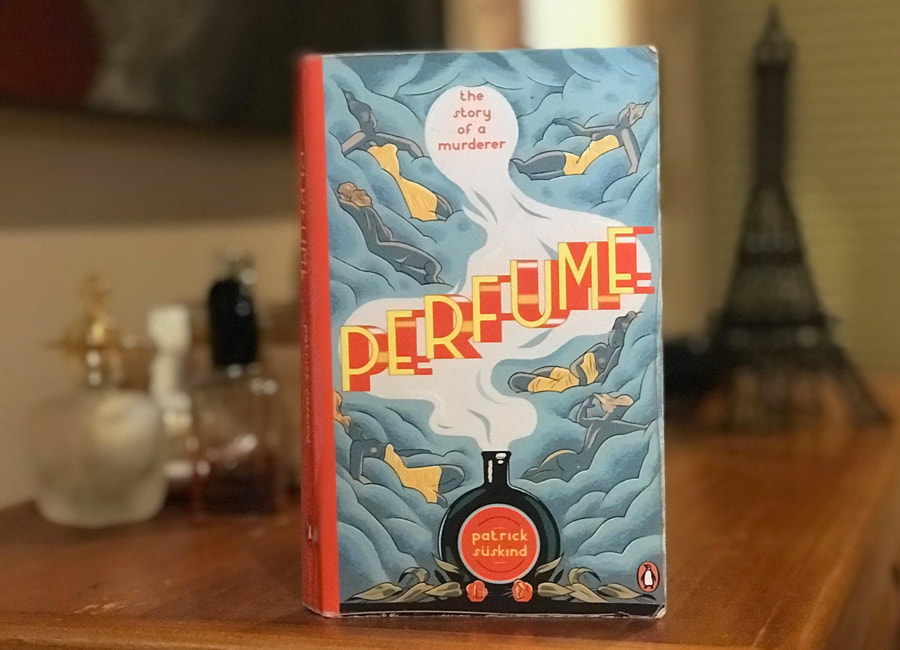|
Published by Penguin | 1985 | Historical Fiction It’s awkward to admit I once followed a woman I didn’t know through the office where I worked.
It seems she only became wary of my odd behaviour when I tailed her into the ladies. When she looked at me quizzically, I apologetically explained that I’d finally found the scent that made my olfactory senses soar. It was her perfume I’d been trailing. I’d never known a scent to affect me so viscerally, and needed to ask her the particulars, with urgency, so I too could possess it. I never happily wore another scent again. When I relayed that true story to a friend, they urged me to read Perfume: The Story of a Murderer – the best-selling 1985 novel by German author Patrick Suskind. Mysteriously, this classic hadn’t made it onto my radar, despite holding its spot at top of European best seller lists for eight consecutive years, and 15 million copies bought worldwide. Nor had its 2006 film adaptation starring Ben Wishaw, nor the more recent 2018 take for a Netflix TV series. After finally borrowing a copy, I have no doubt the sensory overload that arose out of every single page will waft in my imagination forever. It’s certainly one of the most bizarrely imaginative novels I’ve ever read. And just as I couldn’t ignore my nose the day I followed the stranger, the protagonist in Perfume, Jean-Baptiste Grenouille – who has a sublime and almost superhuman sense of smell – is compelled by odours. Only in Grenouille’s case, his quest for the perfect scent turns murderous. Tracing Grenouille’s bleak life from his abandonment at birth in 1738 in the “most putrid spot” in Paris, we soon learn of his remarkable sense of smell, although curiously he has no personal odour of his own. As a boy, he inhales the aromas of Paris, where there reigned, writes Suskind, “a stench barely conceivable to us modern men and women”, with its combination of manure, mouldering wood, rat dropping, spoiled cabbage, sweat, mutton fat and many other rank delights. Almost every following page is permeated with such pungent imagery, Suskind (as translated into English from German by John E Woods) evoking a powerful sensory reaction – in equal measures delectable and nauseating. Grenouille apprentices himself to a prominent Parisian perfumer who teaches him the ancient craft. But his genius in distinguishing odours is so absolute that he becomes consumed with capturing the “ultimate perfume” – the scent of a beautiful young girl. And so begins a terrifyingly humorous and sinister examination of blind obsession, explored through the mind of a man who perceives the world not through vision but by smell, while showing the powerful connection between scent and emotions. It’s a thrilling and, at times, overpowering novel, made all the more curious by the knowledge that its author, now in his 70s, lives apparently as a recluse in both his native Bavaria and adopted home in France, having withdrawn from literary society and keeping a very low public profile. Das Parfum, as it was originally titled, is his only known novel, although he also authored some novellas, a play and a collection of essays. It's impossible not to think about scent in a new post-Perfume light. But for me it also stirred up quite a bit of grief. Because remember that revelatory perfume I trailed? It was “Boudoir”, by Vivienne Westwood. For more than a decade I exulted in its glory, until the distressing day I discovered the scent was no longer being made. Not for lack of trying, I’ve never found close. If only Grenouille were around to lend me his skills. Comments are closed.
|
Categories
All
Archives
May 2024
|

